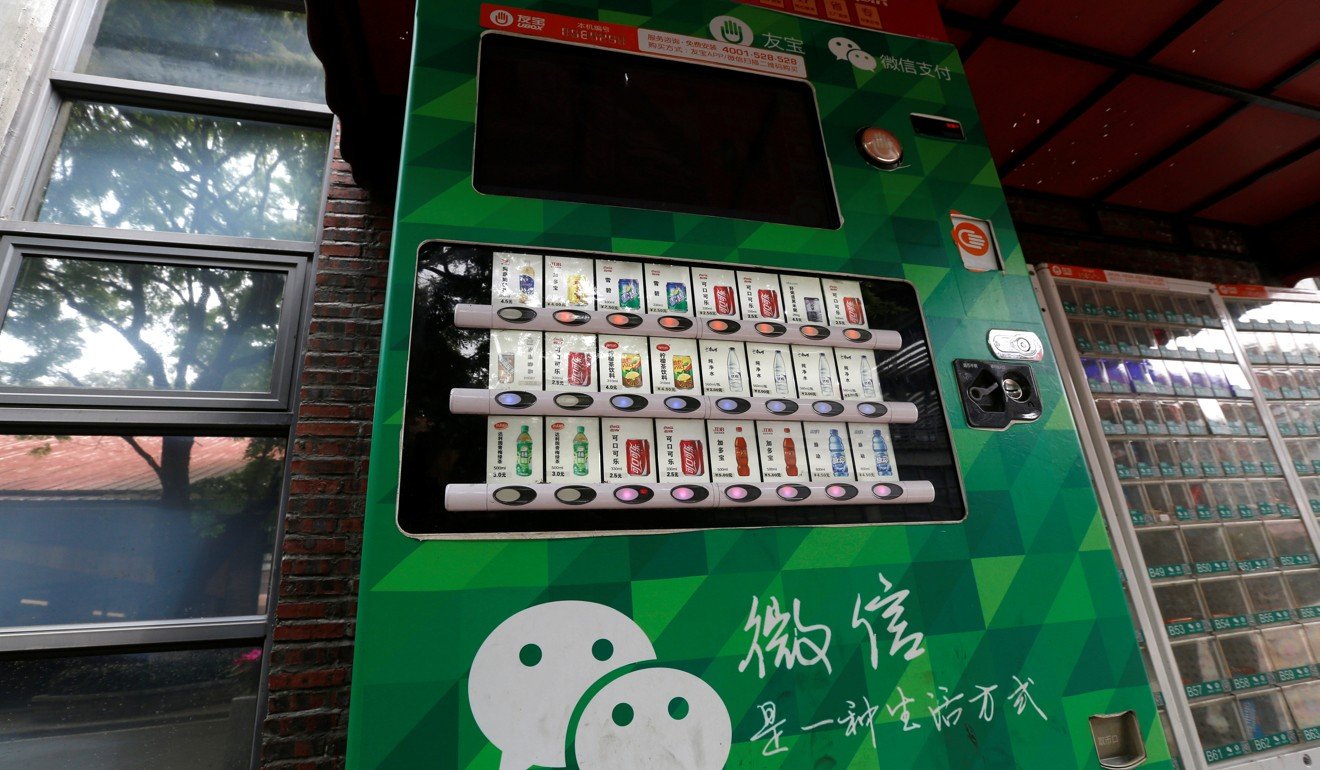
China to overtake US as top market for digital payments by 2020, report says
Growth in digital transactions in China to reach 36 per cent over the next five years thanks to surging popularity, with the untapped rural markets also pushing up growth rates, report by Capgemini and BNP Paribas says
China is set to be the global leader in digital payments by 2020, overtaking the US in a market predicted to grow by double-digit rates over the next few years according to a study.
The number of global non-cash transactions will increase at a compound annual growth rate of 10.9 per cent until 2020, when they will reach 726 billion, French technology consulting firm Capgemini and banking group BNP Paribas said in the “World Payments Report 2017”, released on Monday.
Developing economies as a whole will grow at 19.6 per cent a year, with emerging Asia, led by China and India, set to record the highest growth worldwide – 30.9 per cent – due to sustained digital innovation and adoption of digital payments.
“By 2020, it is highly likely that emerging economies will be the powerhouses of global non-cash transaction volumes growth, with China most likely challenging the US as the leading market,” the report said. China alone will see growth of 36 per cent over the next five years, it added.
The study comes shortly after a United Nations report that predicted online, mobile, and digital currency payment systems would overtake credit and debit cards as the most popular ways to pay for e-commerce worldwide by 2019.
China is currently in third position in terms of the total non-cash transaction volumes. Its growth would be driven by multiple initiatives designed to create a cashless economy, improve financial inclusion and increase digital payments innovation, the report said.
“Chinese shoppers are more willing to store their payment information on their smartphones and are also willing to experiment with alternative payment methods, suggesting higher growth rates of mobile payments in the near future,” the report said.
It expected China’s rural markets, which are mostly untapped, to catch up with urban markets and record higher growth in the coming years.
Chinese financial technology firms have already begun to export their services, a trend noted in the report.
Ant Financial, an Alibaba affiliate, has been trying to buy US-based MoneyGram International. It has filed for clearance from the Committee on Foreign Investment in the US.
Tencent, Alibaba’s rival in China, has also made a push into India’s e-commerce and online payment industry. It led a US$175 million funding of Indian messaging app Hike last year, along with Taiwanese tech firm Foxconn, and partnered with Microsoft and eBay earlier this year to invest US$1.4 billion in Indian online retailer Flipkart.
China’s mobile payment market had reached 23 trillion yuan (US$3.5 trillion) by the end of the second quarter, up 22.5 per cent from the previous quarter, according to Analysys International, a Chinese internet research firm.

The growth has prompted the country’s regulators to look into how to supervise the industry.
“The development of non-cash payments and the decrease in the use of cash are an irreversible trend,” Wang Xin and Guo Dongsheng of the People’s Bank of China, wrote in an opinion piece published in the China Finance magazine earlier this year.
“The government and the central bank should regulate the use of cash, create a favourable environment for non-cash payments, accelerate the research and development of fiat cryptocurrencies, and reduce the use of physical cash,” the two said
The Capgemini and BNP Paribas report also expected technological innovations, such as the internet of things (IoT) and blockchain, to transform the payments market landscape, as data becomes central to payments.
The IoT is the interconnection of computing devices, such as electronics and sensors, embedded in physical objects, enabling them to collect and exchange data. It is expected that by 2021 more than 15 billion machines and consumer electronic devices could be connected.
Several mobile wallets and peer-to-peer payment schemes are being trialled using blockchain technology, some of which may see increased adoption in the future, the report added.
Alibaba owns the South China Morning Post.

